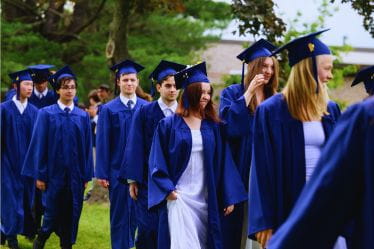We use cookies to improve your online experiences. To learn more and choose your cookies options, please refer to our cookie policy.


If you, like thousands of other college applicants (or their parents), are lured in by the big names of top universities (places you’d see on the sweatshirts they sell at tourist kiosks, places like Harvard, Stanford, and Oxford) here are some surprising facts you should consider before applying.
1. Are you in love with the Ivy League? Consider the statistics. Strap in for our first fun statistic: there are over 40,000 high schools in the USA. This means that there are at least 40,000 valedictorians who graduate every year. Meanwhile, the entire Ivy League only has about 14,000 spaces for incoming freshmen. Even if you’re a top student, you need to include schools on your college list that are outside the Ivy League. Aim high, but also realize that there are many more qualified applicants than there are spaces.
2. Really examine your qualifications. Most colleges publish a ‘class profile’ that will give you an indication of what a successful applicant to that school looks like. If you’re wondering, here’s one from the University of Chicago and another from Oxford. While some give only cursory data, others are detailed. If your profile doesn’t match those of previously accepted students, take it as a gentle warning: it is unlikely that you’ll be admitted to a college where your scores aren’t at least in their middle 50%. In some countries, you must meet minimum published entry requirements, or your application will not even be considered. Be sure to understand what is required before applying.
3. Rankings don’t necessarily guarantee success. Robust research from the Gallup-Purdue Index tells us that it isn’t so much about where you go to college as opposed to what you do in college. The types of experiences that forecast success can happen on any college campus. Make lasting relationships, join activities, and get yourself a job or internship to maximize your time in college.
4. While rankings are everything, if you want to increase your chances of being admitted to a global top 30 you should consider looking outside the USA. The QS World University Rankings include institutions like the University of Sydney. Unlike the Ivy League, Sydney is crystal clear about what they require for entry. If you’d like to major in the field of Computer Science, you can apply to the Bachelor of Engineering Honours (Software Engineering). If you’ve gotten at least a 1210 (SAT) or 25 (ACT) you’ve met the requirements, and it is very likely that you’ve already got the credentials that will get you into a global top 30. Graduates of University of Sydney go on to work at places like Adobe, Google, and Microsoft.
5. Top American colleges usually meet full demonstrated financial need, but other countries can offer an elite name at a cheaper price. The University of Toronto sits near Columbia University on the QS World University Rankings. The cost of attendance to study Commerce and Business Administration at Toronto is about $67,000/year (in USD). Meanwhile, you could study Economics and Special Concentration in Business Management at Columbia, but you’d be paying around $86,000/year (in USD). If cost is important to you, it might be worthwhile to consider a geographically broad college search.
One of the best things about working at an IB school like BISB is that we can help students apply to universities around the block or around the globe. If you are a student or a parent starting to think about the next steps towards university, it absolutely makes sense to consider a wide array of options. Students and families should consider scheduling an appointment with their college counselor if they have particular questions or concerns about next steps and how students can get the support they need when applying to college.
Dr. Monica Gallego Rude holds a Bachelor of Arts in History and Educational Studies from Washington University in St. Louis and a Doctorate in Education from the UCL Institute of Education. Prior to coming to BISB, she served as the Director of College Counseling at schools in Boston and New York City. On the “other side of the desk,” she worked in an admissions office and was as an Assistant Director of Admissions reading files from both domestic and international students. She began her school-based career as a College Counselor at an IB World School in Asia.